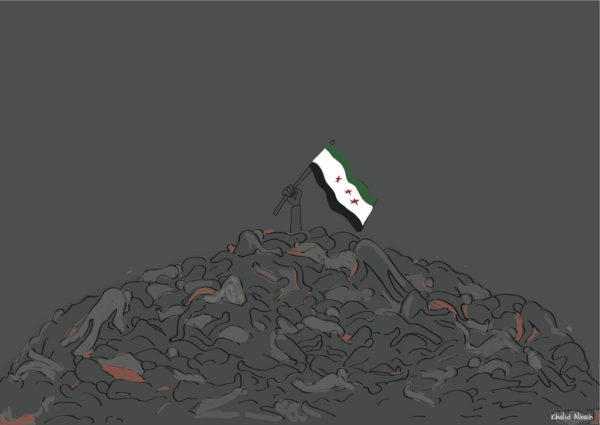It all began with a jasmine scent that spread from the Tunisian squares into the rest of the world; with the ringing of cell phones of thousands of people, particularly, young people, who believed a better world was possible. They were called Arabian springs.
Hopes were aroused in those days; enthusiasm seized the squares and streets of several countries; young and not so young people expressed their protests in North Africa and in the Middle East. In Latin America, many admired their daring and dreamed of the same springs.
Collective courage swept the fears accumulated over the years in nations whose authoritarian governments seemed immortal —as in Tunisia and Egypt—, and repressed hatreds loomed.
The jasmine scent however soon turned into the sour smell of something burnt; joyful slogans were silenced by the whistling of weapons. Jails were filled with prisoners and the pain of torture; and the streets, with the blood of the dead.
The springs turned into relentless winters; the dreams of democracy found the reality of dictators with different faces and similar ends; peaceful revolutions became civil wars.
In Syria it all began in the early days of March 2011, when some teenagers wrote the phrase «as-sha’b yurid isqat an-nizam» (the people ask for the fall of the regime) on a wall of Deraa.
Despite their young age, the boys were arrested and tortured.
Indignation spread like fire. Tired of putting up with a government dominated by the Alawite family of the Assads; hopeful of being better understood by Bashar al-Assad, the son of President Hafez al-Assad, who had been educated abroad, and was thought to be more democratic and sensible, thousands of people took to the streets. Peaceful demonstrations marched across the country calling for democratic reforms and the end of a state of emergency decreed by Hafez al-Assad in 1963: an impossible dream.
Peaceful demonstrations were brutally stifled, foreign interests infiltrated a revolution that was quickly becoming a war; the armies of both sides in conflict began to speak many different languages.
In those fateful days the black cloud of pain and death covered a population that, after the raid of each side, has been transformed into an aseptic and terrible expression: the civilians. The «civilians» who die by mistake, who dared to dream and were punished with hell, who are used as cannon fodder in their homeland, and as Trojan horses, when they desperately seek asylum and, unknowingly, hide extremists amongst them, who are willing to transform into blood the hatred withering their souls.
That population —part of which has remained in a country that no longer exists, trying to invent a life with glimpses of normality, and the other part seeks in the world an increasingly scarce solidarity— attends with stupor to the disaster unleashed by a graffiti on a wall.
Syria has become the theater of many wars, where different armies show the teeth of the powers maneuvering them, be they territorial, ethnic or religious. Diverse interests intersect in a martyred country: Iran, Russia, the Lebanese Hezbollah group. Shiite militias from other countries support Assad; the Islamic State has found a space to organize its strategy of death amid the chaos of war. The Kurds are fighting ISIS and, at the same time, are attacked in northern Syria by Turkey that fears the creation of a Kurdish state on the border. And there are also the differences faced by different rebel groups.
The fear generated by so many wars in one, has forced the rest of the world to intervene cautiously, a caution that in many cases has been interpreted as weakness. And when Assad ordered the recent, terrible, chemical-weapon attack into Idlib —the last stronghold in the hands of the rebels— he was possibly convinced that he would be able to act with impunity. The international babblings of previous years and the «friendship» between Putin and Trump could have fueled that certainty.
Trump decided however to leave aside diplomacy and to play war. A game he seems to like, considering that he immediately dropped the «mother of all bombs» in Afghanistan. Why? What is his strategy?
Unfortunately, truth is the first victim of wars; and it is very difficult to know what and who is behind those decisions. Were they adopted by the men in charge of strategic entities such as the National Security Council, the Department of Defense and Homeland Security, to show to The World the muscles of the US military power? Or was it that Trump wanted to show his fellow countrymen that his friendship with Putin is a lie? Or are the multinational weapons manufacturers the ones that call for more wars? We will never know; we will never be able to completely tear the veil with which power conceals its true intentions.
The only thing we can see is the suffering of a massacred population; we can perceive the pain of the dead, the tortured; the lament of cities torn by barbarism; the despair of the fugitives who are looking for a place that will allow them to forget.
Far away is now the sweet jasmine aroma that one day we breathed along with so many different people.
Now the air of the world has the harsh smell of fear.
Photo Credits: Khalid Albaih


